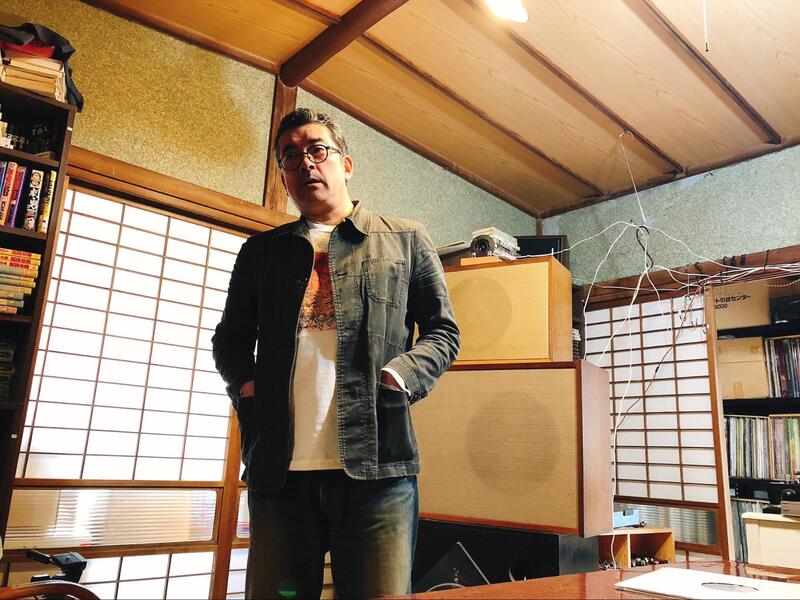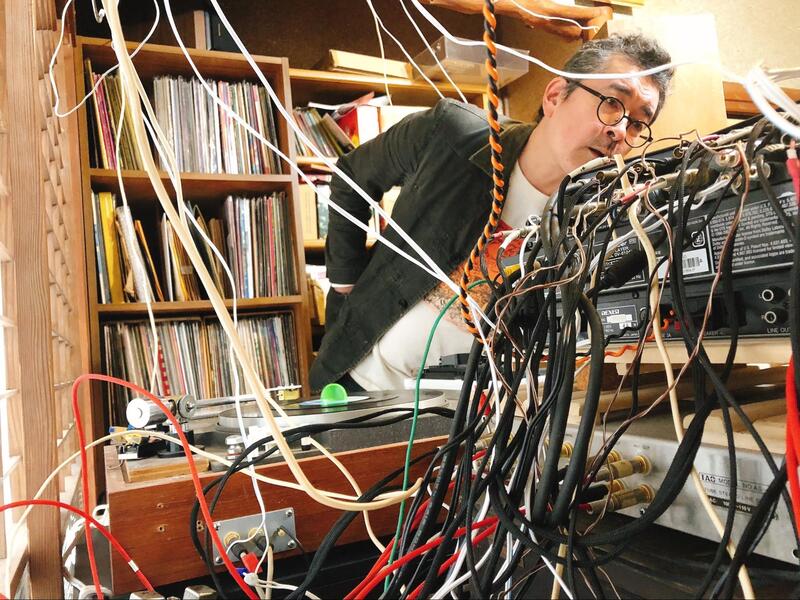

We interviewed Mr. MItsuhiro Asakawa who is the manga editor and repairs and sells the vintage cartridges.
– I heard you were the editor in charge of Yoshiharu Tsuge. When did you meet him?
Mr. Tsuge had drawn manga until 1987, when I was a university student. I had been just a reader of his works before started editing.
– I read “A View of the Seaside”. I felt something philosophical from it.
Manga as the entertainment has “kishotenketsu (the four-parts organization composed of introduction, development, turn and conclusion)”, but he started to draw the works without conclusion and leave it to the reader’s imagination.
In the late 50s, young manga artists started the “Gekiga” movement which features familiar things as the subject matters leaving the fantasy for children.
Mr. Tsuge adopted it and took the expression of manga to the next level.
– Didn’t you think draw the manga by yourself?
No. I did not need to do because the works at the highest level had already existed. It’s more realistic to help the manga artists than to draw by myself.


– Did you sometimes advise the artists as the editor?
I was the editor of “Garo” (Manga magazine), which Sanpei Shirato started with his own money. Normal publishing companies interfere with the manga artists. Shirato hated the regulation, so started “Garo” with the editor who has same spirit as his. So the editor in “Garo” didn’t interfere the artists.
The manga artists drew as they want to do. Insead, they can’t get the fee. If it was published as a independent book form, they can get royalties.
The works had artistic qualities, but aren’t entertaining, so the magazine was not popular.
The publisher of “Garo” was “Seirindo”, which the owner changed in 1997.
The editor of “Garo” went independent and created “Seirinkogeisha”. The company published “AX” in 1998 and I was the editorial staff of that.
After I left the company, the manga artists of whom I had been in charge have sent me the drafts. So I still mediate them to the editors, write the commentaries, and edit the independent books.
– It’s happy thing to be the first reader of the works of favorite artists, right?
Yes, but I point out the faults. Even if the artists can draw freely, I have to control the works so that they reach a certain level.
– So did you continue to be the editor after graduated the university?
Yes. I started to sell vintage cartridges influenced by “Selling the Camera” by Yoshiharu Tsuge. The story is that a poor manga artist get a used broken camera and repair it to sell. Getting the hint from it, I start to repair the cartridge. I like music originally.
When I start to repair, edited “Analog Mystery Tour 1962-1966” (2012), the commentary book of the Beatles’ records. Each record has different sound, especially between UK and Japanese press.
Manabu Yuasa (a music writer) serialized the album review on the magazine “AX”. I told him the sound of the Beatles’ monaural record pressed in UK is interesting. Yuasa-san also got the UK press and we started to collect the records of the Beatles after that.
We wondered how about other countries, started to collect various countries’ records like Barbados and Jamaica. Every country has different sounds. The sound of the sitar is so emphasized in Indian press. It’s like a joke but truth. We decided to publish the book about it. “Analog Mystery Tour” is a crazy book which contains our trivial conversations about records while listening the Beatles around the world.


– How do you judge the quality and difference of sounds?
It depends on the tastes of listeners. I feel the cultural backgrounds influences the sounds. In addition to that, the different languages have the different frequency bands.
Of course, the listeners’ tastes of the countries influences the sounds. I was surprised the difference of the vocal between US, UK and French press.
I think the difference like that is so interesting, and talks about that are written in “Analog Mystery Tour”.
– Did you start the repair after publishing the book?
I did both at the same time for a while, but got to spend more time repairing the audio.
At first, I use the simple system, but it changed gradually as I wrote the book.
Some records are cut in reverse-phase mistakenly, so I made the switch to change the phase. I started doing crazy things like that.
After I published the first volume of “Analog Mystery Tour”, I left the company.
– How do you repair cartridges?
Few people can repair vintage cartridges now. The cartridge made several decades ago can’t reproduce good sound if it can be used. So if I get the unknown one, take it apart and check the internal structure. You become able to repair as see many cartridges. Most of fault are caused by deterioration of the vibration system.
– What do you feel from old technology?
I think old technologies are more interesting than recent ones. They have different sound and I can feel the joy of the makers. They are devised and have handmade-feeling. Same models have individual differences and different structure depend on the production time.


– I think the repairing cartridges is so difficult.
The structures of old cartridges are primitive and later models are improved based on them. So I modify old ones with later technics. I take damper rubbers from dead stock or make of the materials from DIY stores by myself. It’s not so difficult. I’m releasing the information about it on Facebook, but few people try it actually.
– Have you changed through the repairing?
If I write a book now, that would be so different from “Analog Mystery Tour”. When I write it I don’t know anything about analog records. If I write again, it would be too specialized so nobody want to read it, I think.
– Are you planning to expand your business?
Now I’m pursuing better sound and I think if I can make the ultimate one, that’s enough. However, the attitude like that is not suitable for business.
– I think your products are more popular with foreigners than Japanese.
Right. More followers and better reactions.
– Do you feel the difference between them?
Yes. Foreigner evaluate the products without bias. All of my products are handmade, but 2 or 3 hundreds regular customers want them now.
– Do you think analog records can survive in the future?
Yes. Analog records have different charm from CDs.
The cartridges on the market now are designed several years ago, so we have to develop new ones for the future of analog record culture.

– What is analog record to you?
Privacy & Cookies Policy
Privacy Overview
This website uses cookies to improve your experience while you navigate through the website. Out of these cookies, the cookies that are categorized as necessary are stored on your browser as they are as essential for the working of basic functionalities of the website. We also use third-party cookies that help us analyze and understand how you use this website. These cookies will be stored in your browser only with your consent. You also have the option to opt-out of these cookies. But opting out of some of these cookies may have an effect on your browsing experience.
Necessary cookies are absolutely essential for the website to function properly. This category only includes cookies that ensures basic functionalities and security features of the website. These cookies do not store any personal information.
